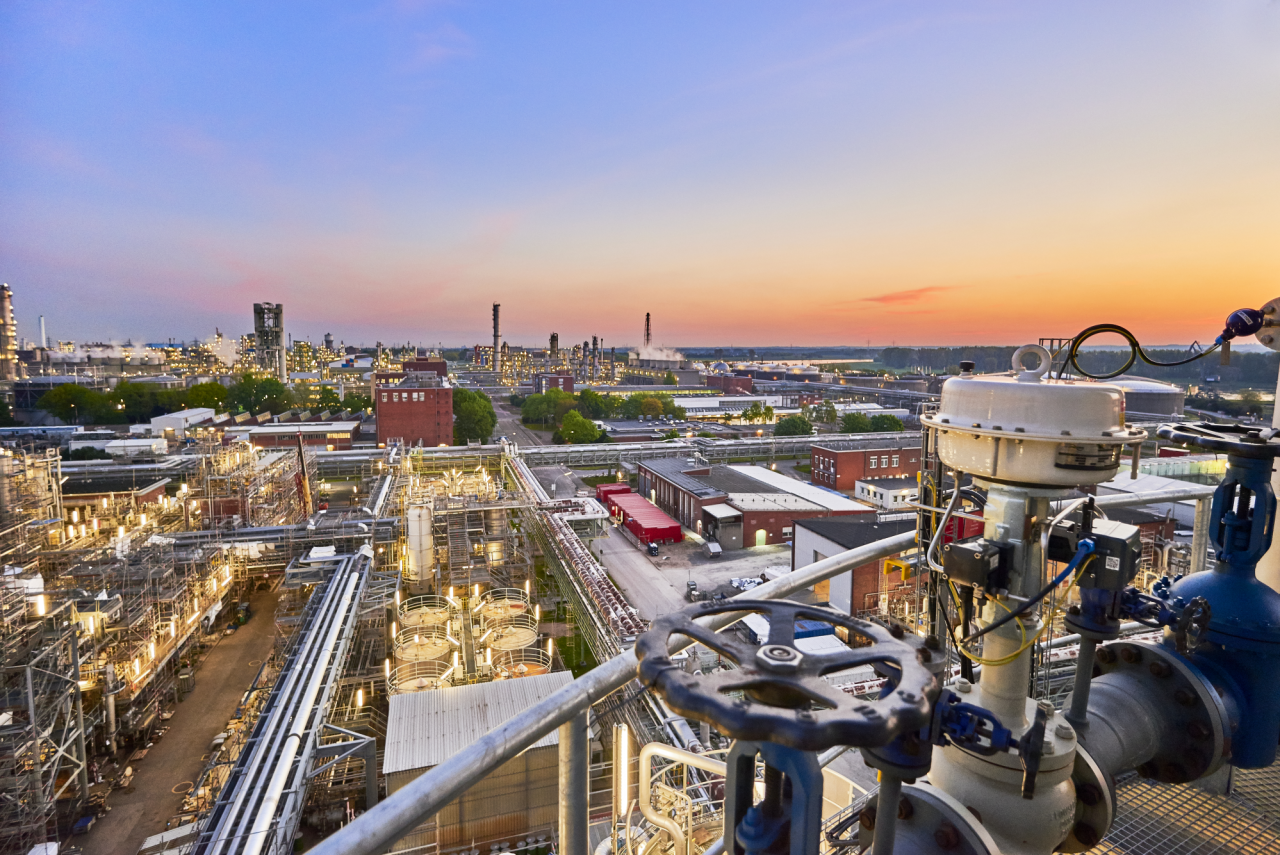- €770,000 Funding has been confirmed for the ChemCH2ange project
- The INEOS project at Köln is expected to reduce greenhouse gas emissions by more than 100,000 tonnes per year.
- INEOS green hydrogen project accelerates towards net-zero future in Germany by 2045
The state government of North Rhine-Westphalia has confirmed €770,000 funding to support a feasibility study for the construction of a 100-megawatt water electrolysis plant for the production of green hydrogen at the INEOS site in Köln.
INEOS plans to build and operate a new green hydrogen plant at the site, as part of its €2 billion Euro package of green hydrogen projects across Europe announced in October last year. The project at the Köln site alone could lead to a reduction in greenhouse gas emissions of over 100,000 tonnes per year.
The feasibility study will investigate how the green hydrogen production plant can be efficiently implemented at the INEOS Verbund site. The support from the state of North Rhine-Westphalia will cover a quarter of the eligible costs for carrying out the study.
Dr Stephan Müller, Commercial Energy Manager at INEOS in Köln said. “Water electrolysis for the production of green hydrogen is an incredibly important component of our ambitious sustainability agenda with the goal of reaching net zero by 2045. The funding decision shows the significance that the state of NRW attaches to our project.”
The hydrogen produced in the new plant using only renewable energy is to be used directly in the ammonia production plant at the site and, potentially in the future, for the production of methanol.
The climate-neutral production could also cover hydrogen needs in the Chempark and beyond, including regional transport.
Due to the versatility of hydrogen across industry and into the logistics and transport sector the Köln investment is seen as a lighthouse project for the chemical sector across North Rhine-Westphalia. It has the potential to deliver a significant contribution to the implementation of the European and national hydrogen strategy and significantly contributes to achieving climate targets set in the North Rhine-Westphalia's hydrogen roadmap.
Former Minister of Economics and Innovation Prof. Dr. Andreas Pinkwart said: “The project is an important step on the way to a climate-neutral chemical industry in North Rhine-Westphalia. North Rhine-Westphalia will become a model location for innovative value chains and the project shows how important hydrogen is in this process. In the future, the project can supply not only the Köln Chempark but also logistics with green hydrogen. We need precisely such holistic projects to be successful in the transformation.”
The feasibility study is funded within the framework of the “Programme for the Rational Use of Energy, Renewable Energies and Energy Saving” (progres.nrw), where the state of North Rhine-Westphalia bundles the majority of its funding activities in the area of climate and energy policy. In the “Innovation” programme area, NRW funds application-oriented research, development and innovation projects as well as feasibility studies that contribute to the reduction of greenhouse gas emissions and thus to the achievement of North Rhine-Westphalia's climate protection goals.
ENDS
For editors:
Media Contacts
Richard Longden (Richard.longden@ineos.com) 0041 21 627 7063 or 0041 7996 26123
Andrew McLachlan (andrew@mediazoo.tv) 07931 377162
Alex Williams (alex.williams@mediazoo.tv) 07793 207325
About INEOS: INEOS is a global manufacturing company making the raw materials and energy used for everyday life. Its products make an indispensable contribution to society by providing the most sustainable options for a wide range of societal needs. For example, preservation of food and clean water; construction of wind turbines, solar panels and other renewable technologies; for construction of lighter and more fuel-efficient vehicles and aircraft; for medical devices and applications; for clothing and apparel; and for insulation and other industrial and home applications.
INEOS businesses have put in place the plans and actions needed to ensure that they lead the transition to a net zero economy by no later than 2050, whilst remaining profitable, and staying ahead of evolving regulations and legislation. As part of its greenhouse gas emission reduction strategy, there is widespread goal to move to a more circular economy, in which materials are re-used to their maximum extent.
